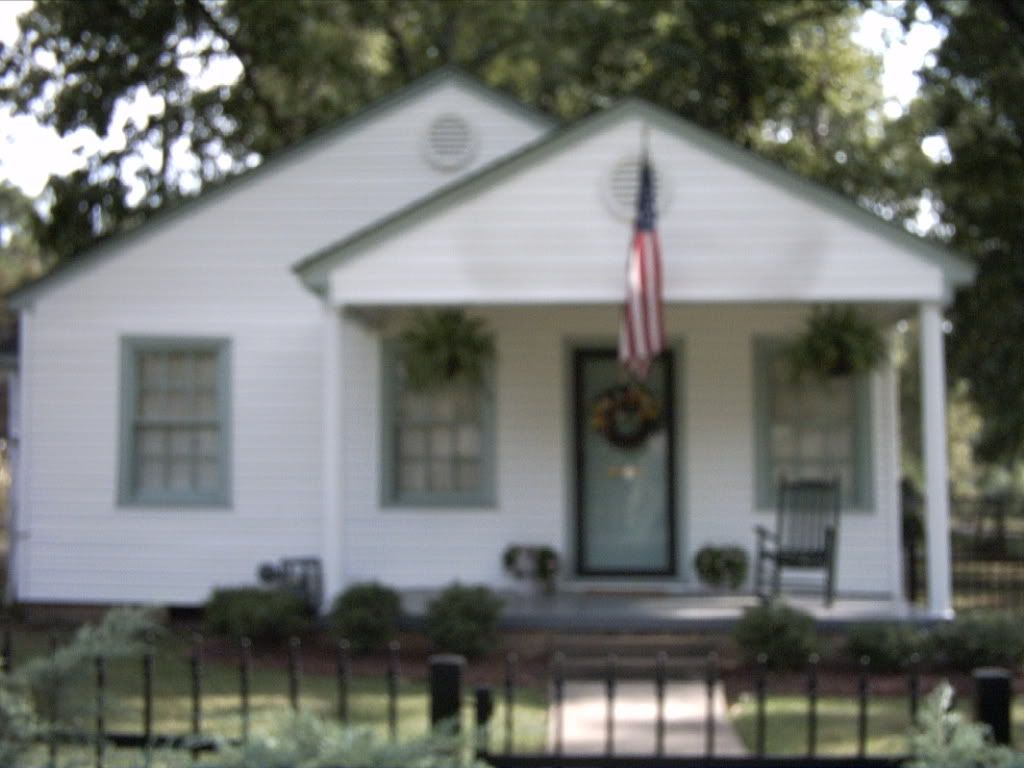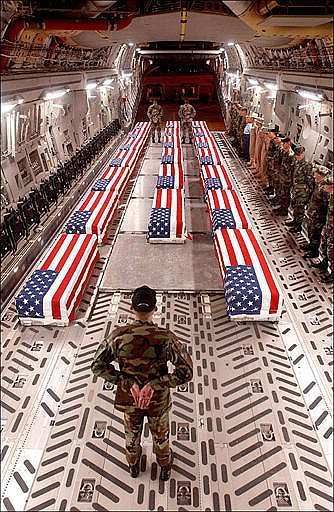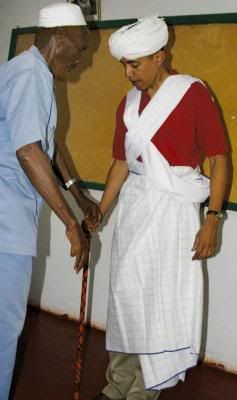Most white Americans can not stand Jesse Jackson and Al Sharpton. I'm sure about this because I'm around white people a lot, what with being white and all. Bill Clinton's putting Obama's name out there with Jackson's was calculated - and despicable.
Bill Clinton is a sharp pol. From what I've read, even direct quotes over the years, the man can calculate electoral percentages quicker than you or I can figure up how much to tip a waitress (Catholics plus X percent of Protestants on this issue, X percent of red state support on that issue). He knows the different demographics and how they will break around various issues. He knows these as well as he knows the insides of his own eyelids. I am certain of it.
Bill Clinton knows the demographics - and he knows how to split them too. For instance, remember his infamous Sister Soulja moment? As recently as 2004, he was, we now know, still up to his old tricks:
Clinton Advice Spurned. Looking for a way to pick up swing voters in the Red States, former President Bill Clinton, in a phone call with (John) Kerry, urged the Senator to back local bans on gay marriage. Kerry respectfully listened, then told his aides, "I'm not going to ever do that." (Pam's House Blend).So, Clinton knows how to split different demographics for political advantage (right - and my next insightful post will be on the imporant topic of "the world is indeed round"). He is willing to throw minority groups under the bus if he sees a potential electoral advantage to doing so.
After spending my Katrina evacuation in Little Rock (which we chose so we could tour Clinton's presidential library...it beats Houston!), I decided to take a detour through Bill Clinton's boyhood home of Hope, touring some of the sites linked to the childhood of the former president.

Truth be told, there wasn't that much to see. There was Clinton's mother's home, his grandparents' home. There was the Blythe/Kelly/Clinton cemetery plot, an unremarkable looking school he attended (long since converted to another purpose). Finally, there was a little train depot that functioned as a museum.
That was it.
Still, I am so glad I took that detour. It was deeply moving, not because any of the designated sites of interest were in any way remarkable, but precisely because none of it was remarkable. As a southerner, once I'd walked around in Hope, Arkansas, I felt I understood some things about our nation's forty-second president. The southerness of the place was palpable. It looked quaint and tidy in places, shabby and unkempt in others. There was no large-scale commerce, no industry. There was poverty. And, to this New Orleans girl, the racial mix of the residents looked like that in my hometown (indeed, census figures show that the town is about 42% white and about 42% black).
From this place came Bill Clinton, this humble place, a president born of working people. I admit that tears came to my eyes because for all that I bitch about what's wrong with my country and engage in activism against the status quo, there is, truly, something right about a country in which a white man so humbly born can become president. (I know, I know. Radical critics are supposed to hate America, right? Well, actually, as Dr. King said, "I criticize America because I love her. I want her to stand as a shining moral example to the world."* No, I'm not an America hater, no matter what my brother-in-law says about me. In truth, I'm a woman whose idea of a great vacation is to go to Washington, D.C, to wander the grounds of Mount Vernon giving thanks for the light rain shower so that no one will notice that I'm crying, to visit the Library of Congress and find that I have to locate a bench on which to rest because standing just on the other side of the glass from Thomas Jefferson's beloved book collection has literally made me lightheaded. I confess to all of that even though, in the context of the rest of this essay, said confession puts me firmly in the camp of white American nationalists I'll be criticizing a few paragraphs hence - just one of the many paradoxes inherent in trying to do antiracism work when you're white like me. Please forgive me my absurdity while I flirt with radical honesty. As Walt Whitman said, "Do I contradict myself? Very well, then I contradict myself, I am large, I contain multitudes.")
In this place called Hope, Clinton has oft told us, his grandfather taught him to reject the racism that was as much an ordinary part of life for whites as were warm, ripe tomatoes and oversized, iced watermelons. Clinton's grandfather taught him by example to do business with local blacks the same as he did with whites, a habit quite different from other white shopkeepers of the day.
So, I've been to Bill Clinton's hometown. I know he and I share the same roots, roots in a beloved, schizophrenic South - a South of sweet tea and relic slave shacks, of casserole-bearing funeral attendees and still-segregated churches, a South of unfailing manners as well as fierce racism both personal and institutionalized (I've lived up North and out West too, and white people there need not check their mental compasses for due South when they think about racism).
And so I've seen where Bill Clinton grew up. And I know. I know that Bill Clinton knew exactly what he was doing when he made that comparison of Barack Obama to Jesse Jackson. He knew, and for personal gain for himself and his, he was willing to fan those racist flames, always there, always hot, always bright - and denied by whites even if maintaining that denial requires us to stay in our skivvies and wander blindfolded while denying the existence of the fire.
Oh, he knew.
And it isn't just that Clinton compared Obama to Jackson, Jackson is someone most whites don't like, therefore the association could hurt Obama. It is that, but it's also more.
Hearing about what's happening with Obama's polling numbers beginning to decline now that lots of oh-so inculpable white people have seen film of Obama's pastor speaking his truth, I was thinking today that about how this process, this process of making Obama black enough to make whites consciously uncomfortable, began with Bill Clinton's comment in South Carolina. Now, I'm sure someone - a bunch of someones - would have eventually begun doing that anyway. So this thought came to me: they intended to morph him into "the angry black preacher," to link Obama in the minds of white voters to Reverend Jesse Jackson and Reverend Al Sharpton. It ended up being Reverend Jeremiah Wright instead.
Mission accomplished. Heckuva job, Billy.
And it's no coincidence that in order to morph Obama into those two "angry" black preachers so dreaded by whites, they went through....Obama's preacher.
That was the only way white culture, really, could finally go after Obama.
You see, most white people - and I am a white person - don't know black people. Sometimes, it's overtly racist whites who don't want to know black people. Sometimes, we move to the suburbs, shop at Whole Foods, vote for Democrats, and tell ourselves we just don't have that much opportunity for interracial interaction, but that if we did, you know, we're sure we would be "good" white people who are culturally colorblind. After all, in our reality, race isn't a problem, ergo racism isn't a problem in America.
And even if we know some black people, we don't know black people. How can we, running around the racist bonfire I described above, stripped down to our skivvies and blindfolded so we can deny the heat and the light that are right there? Blindfolded is no way to see. So we don't see.
And when we, blindfolded, hear someone like Jeremiah Wright, ranting apparent madness out there in the beyond, we are shocked. We are appalled. We are angry. We can't imagine why they are being so racist!**
Why don't we know black people? Simply because, to borrow from the boorish Jack Nicholson, we can't handle the truth.
I'll borrow from someone far wiser than I to explain further (his name actually is Tim Wise, but that actually isn't why I consider him a wiseman):
What Jeremiah Wright knows, and told his flock--though make no mistake, they already knew it--is that 9/11 was neither the first, nor worst act of terrorism on American soil. The history of this nation for folks of color, was for generations, nothing less than an intergenerational hate crime, one in which 9/11s were woven into the fabric of everyday life: hundreds of thousands of the enslaved who died from the conditions of their bondage; thousands more who were lynched (as many as 10,000 in the first few years after the Civil War, according to testimony in the Congressional Record at the time); millions of indigenous persons wiped off the face of the Earth. No, to some, the horror of 9/11 was not new. To some it was not on that day that "everything changed." To some, everything changed four hundred years ago, when that first ship landed at what would become Jamestown. To some, everything changed when their ancestors were forced into the hulls of slave ships at Goree Island and brought to a strange land as chattel. To some, everything changed when they were run out of Northern Mexico, only to watch it become the Southwest United States, thanks to a war of annihilation initiated by the U.S. government. To some, being on the receiving end of terrorism has been a way of life. Until recently it was absolutely normal in fact.
But white folks have a hard time hearing these simple truths. We find it almost impossible to listen to an alternative version of reality. Indeed, what seems to bother white people more than anything, whether in the recent episode, or at any other time, is being confronted with the recognition that black people do not, by and large, see the world like we do; that black people, by and large, do not view America as white people view it. We are, in fact, shocked that this should be so, having come to believe, apparently, that the falsehoods to which we cling like a kidney patient clings to a dialysis machine, are equally shared by our darker-skinned compatriots....
Whites are easily shocked by what we see and hear from Pastor Wright and Trinity Church, because what we see and hear so thoroughly challenges our understanding of who we are as a nation. But black people have never, for the most part, believed in the imagery of the "shining city on a hill," for they have never had the option of looking at their nation and ignoring the mountain-sized warts still dotting its face when it comes to race. Black people do not, in the main, get misty eyed at the sight of the flag the way white people do--and this is true even for millions of black veterans--for they understand that the nation for whom that flag waves is still not fully committed to their own equality. They have a harder time singing those tunes that white people seem so eager to belt out, like "God Bless America," for they know that whites sang those words loudly and proudly even as they were enforcing Jim Crow segregation, rioting against blacks who dared move into previously white neighborhoods, throwing rocks at Dr. King and then cheering, as so many did, when they heard the news that he had been assassinated.
Whites refuse to remember (or perhaps have never learned) that which black folks cannot afford to forget. I've seen white people stunned to the point of paralysis when they learn the truth about lynchings in this country--when they discover that such events were not just a couple of good old boys with a truck and a rope hauling some black guy out to the tree, hanging him, and letting him swing there. They were never told the truth: that lynchings were often community events, advertised in papers as "Negro Barbecues," involving hundreds or even thousands of whites, who would join in the fun, eat chicken salad and drink sweet tea, all while the black victims of their depravity were being hung, then shot, then burned, and then having their body parts cut off, to be handed out to onlookers. They are stunned to learn that postcards of the events were traded as souvenirs, and that very few whites, including members of their own families did or said anything to stop it.
Rather than knowing about and confronting the ugliness of our past, whites take steps to excise the less flattering aspects of our history so that we need not be bothered with them. So, in Tulsa, Oklahoma, for example, site of an orgy of violence against the black community in 1921, city officials literally went into the town library and removed all reference to the mass killings in the Greenwood district from the papers with a razor blade--an excising of truth and an assault on memory that would remain unchanged for over seventy years.
Most white people desire, or perhaps even require the propagation of lies when it comes to our history. Surely we prefer the lies to anything resembling, even remotely, the truth. Our version of history, of our national past, simply cannot allow for the intrusion of fact into a worldview so thoroughly identified with fiction. But that white version of America is not only extraordinarily incomplete, in that it so favors the white experience to the exclusion of others; it is more than that; it is actually a slap in the face to people of color, a re-injury, a reminder that they are essentially irrelevant, their concerns trivial, their lives unworthy of being taken seriously. (please for the love of god please read the rest of this***)
So, there it is. We don't know black people and Tim Wise has explained why we don't.
And what happens when we don't know or know them? Well, apparently the best we can do is to rely on what we've seen.
What have we seen? Well, each of us has been provided through American culture with a rather limited range of black archetypes. There is what Spike Lee calls "the magical negro, there is "Mammy" (yep, still), there is "the driver" a la Morgan Freeman in "Driving Miss Daisy" - those are the classic archetypes.****
In addition to archetypes, whites commonly hold stereotypes of blacks and despite our being supposedly oh-so postracial, surveys show the list hasn't change much in the last sixty years.
In 1933, the top ten stereotypes of blacks were "superstitious, lazy/slovenly, happy-go-lucky, ignorant, musical, ostentatious, very religious, physically dirty, naive and unreliable."
In 1995, the top ten were "athletic, rhythmic/musical, unintelligent/ignorant/stupid, poor, loud, criminal, hostile, very religious, disloyal to family, and physically dirty." (source)
So I submit that whites individually, mainstream culture, and the media have been struggling to find a category - an archetype or stereotype, something for heaven's sake, it's all so disorienting - a hole into which we whites could peg Barack Obama because, once again, we rely on racist cultural shorthand since we don't really know black people (and we really can't recognize that we don't know because the whole system of white privilege is so invisible to us).
For months, Barack Obama was broadcasting to white America as an individual (well, who doesn't, really) and seemed to be being received as such. He wasn't Mammy (or, to be gender precise, Uncle Peter), the driver, Sambo, "the magical negro" (although some have attempted to link him to the latter). He is clearly not, to return to the list of top ten stereotypes, unintelligent/ignorant/stupid, poor, loud, criminal, hostile, disloyal to family, or physically dirty.
He is athletic, and the media has treated us to a number of "Barack plays basketball" stories, but I think white voters were also seeing in those stories the Obama who is competitive and a fighter, who is focused, who is young and vigorous (although I heard some time back that, should he be the nominee, Republicans will run campaign ads that show him playing basketball).
He did joke during one of the debates about his dancing abilities versus Bill Clinton's, and he also danced on the Ellen show.
I offer these last two items with tongue-in-cheek. The point is that I believe whites and our media have been working down a list of "black people we think we know" to try to know Obama.
One item remains on the list of top ten stereotypes - it's "extremely religious." Somehow, the (white) public has very quickly begun morphing Obama into his minister (even as the Clintons previously tried with Reverend Jesse Jackson). And if the (white) public can successfully do that, can think "angry black minister" when they think of Obama, then we will have finally, after these long months of bumbling around, found one of our holes into which he can be fitted. "Angry black minister." Then maybe Obama too is "angry." And then maybe he hates us. In fact, maybe he can't be trusted; maybe he's acting nice around us and hating us behind our backs and plotting against us (these were the big fears during slavery, obviously, and I think we still fear these things today). AND, Hillary is here to explain to us that he isn't even qualified for the job he seeks - she will give that much to the likes of John McCain, experienced political whore in more ways than I care to list at the moment, and not to Barack Obama. I notice too that the red phone ad has lots of racist fearmongering potential - nighttime, white kids sleeping sweetly all snug in their beds while visions of sugar plums dance in their heads - virtuous white women of America, can you entrust this man with your precious children? (NY Times noticed too).
THERE! I think that'll do it. Yep, he's finally fitting in that hole! Whew, what a relief, my white brothers and sisters. Life as we understand it can now continue! We now return to your regularly scheduled oblivion.
Enjoy your recession. Buy a bikini to celebrate global warming. Keep those kids safe and send them to America's fine institutions of learning; McCain says we'll be needing them in Iraq years from now. Keep a month's supply of, well, everything in case there is a levee breach near you (yeah, you, non-Louisianians, I AM talking to you too; check out the links). Stock up on the duct tape because it looks like for the indefinite future they will be hating us for freedoms (apparently "they" haven't heard that our freedoms ain't what they used to be).





Submission accomplished. Barack who?
UPDATE: A WHITE FRIEND WHO READ THIS SAYS HE HAS A BLACK FRIEND WHOM HE BELIEVES HE REALLY KNOWS. WHEN I WROTE THAT WHITES DON'T KNOW BLACK PEOPLE, I GUESS I WAS THINKING PRIMARILY IN BROADER, CULTURAL TERMS. WHEN IT COMES TO INDIVIDUAL FRIENDSHIPS, I CONCEDE THAT I MAY HAVE OVERSTATED THE CASE. I GUESS I WOULD HAVE TO TALK TO HIS FRIEND, WHOM I ALSO KNOW, AND ASK HIM WHAT HE THINKS.
* Tim Wise's essays don't seem to have individual URLs, so I can't link to them directly. All I can get is the URL to his homepage. From there, click on "essays" and then "A Dream Distorted: Reflections on the Hijacking of Martin Luther King Jr."
** from the link, click on "essays" and then "Another Batch of White Whine:
Obama, Black Voters and the Myth of Reverse Racism"
*** from the link, click on "essays" and then "Of National Lies and Racial Amnesia:
Jeremiah Wright, Barack Obama, and the Audacity of Truth"
**** It occurs to me that in each of those examples, African-Americans are defined strictly according to their utility to white people - mammy, driver, "magic negro." This is also the case with female archetypes - wife (in relationship with a man), mother (in relation to a child), virgin (not yet penetrated by man), slut/whore (penetrated by too many men), femme fatale (man can't resist), damsel in distress (needs protection from or rescue by a man), and so on. This tendency toward what I'm calling for the moment the archetype-in-relation illustrates the extent to which women and people of color are still viewed through the lens of the dominant culture (women as seen by men, people of color as seen by whites).
2 comments:
Hey! I just discovered (fell into? chanced upon?) your blog and I'm digging it already. I foresee a long no-work day wherein I try to play catch-up with previous posts. Anyway, loved everything about this post, especially the way you very concisely broke down your argument. And I was in Little Rock post-Katrina as well (well, Hot Springs) and felt the same pull you did.
Done blathering now. Carry on.
Hi, sorry it's taken me a few days to reply. My best friend from junior high ended up in Texas since Katrina and we FINALLY had our girlfriends' weekend - god, what a great mental health break.
Thanks for the compliments about the blog.
Arkansas was very good to us during Katrina. It was amazing.
Here's another Katrina post, one about the whole experience in Arkansas:
http://nolaradfem.blogspot.com/2008/02/what-katrina-taught-me.html
Thanks again.
Post a Comment